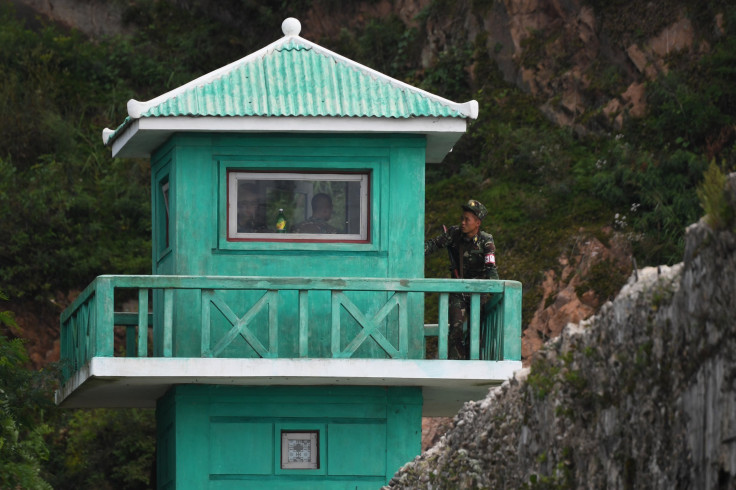North Korean Border Security Beefed Up During Trump's South Korea Visit: Report

Security at the North Korean border was believed to have been beefed up during President Donald Trump’s visit to South Korea last week, according to a report by South Korea based online newspaper Daily NK.
The newspaper said that North Korean law enforcement bodies and Border Security Command were called for emergency duty to carry out “round-the-clock” surveillance and protect the border from any breaches by “potential invaders”.
The revelation comes after news emerged that a North Korean soldier was shot while fleeing over the border into the South.
An unnamed source in the Ryanggang Province allegedly told the newspaper that North Korea believed Trump's visit could be used as an opportunity by South Korean special forces to infiltrate the North through the border with China. However, it is not known if any such incidents did occur.
On Nov.6, meetings of Inminban, a type of neighborhood watch, were allegedly called to address Trump's visit to South Korea. “Residents had to report to the Ministry of People’s Security (MPS) how many members were staying in each household under their jurisdiction. They were also informed that movement of the so-called ‘floating’ (itinerant) population would be severely restricted," the source said.
They added that border security forces, civil defense forces and police, were all ordered to mobilize for emergency duty.
"All units and government organs this morning were instructed to submit new documents detailing their tracking of itinerant residents under their remit and Ministry of State Security and MPS personnel are initiating joint surveillance of residents known to frequently move to different regions for work," the source stated, according to the newspaper.
They also said that many people were criticizing the North Korean government’s actions among trusted circles and were irritated. They opposed the topic of the meetings and said things like, 'I thought they would be waking us up for a good reason, but of course it's just another meeting about a special security crackdown,' and, 'If (the authorities) keep disrupting our lives like this, everyone is just going to escape (defect), Daily NK reported.
Another source in North Hamgyong Province is reported to have said: "The authorities have access to so much outside information they even know when the American president is coming to South Korea, but if we knew that we’d be labeled as spies. When the central powers do that it’s ‘regime security.’ All the other residents around nodded knowingly and even the Inminban head couldn’t think of an appropriate reply."
“Ordinary people are not concerned in the slightest by the arrival of the American president. They only want to know about improving North-South relations and easing of trade sanctions,” they added.
The president’s visit to Asia was dominated by talks on the North Korea nuclear threat. In Seoul, Trump’s speech before the National Assembly on Wednesday talked about North Korea’s human rights abuses and nuclear ambitions. He called Kim Jong Un, a “tyrant,” and said South Korea had an economic “miracle,” the Los Angeles Times reported.
North Korea also responded harshly to Trump’s visit with a spokesman for the country’s foreign ministry publishing a lengthy commentary calling tour a “warmonger's visit” with the goal of ending the nation’s effort to create a “self-defensive” nuclear weapons program.
© Copyright IBTimes 2024. All rights reserved.











